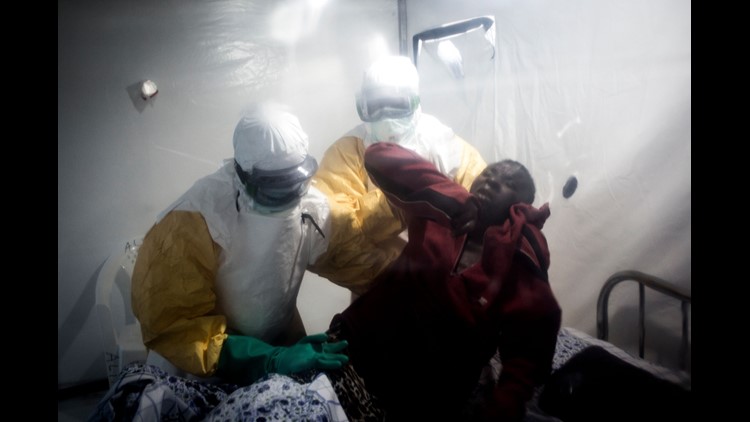(CNN) -- Nearly 100 children have died since the Ebola outbreak in the Democratic Republic of Congo started last year -- and the crisis is gathering pace, with the number of new cases doubling last month, according to charity Save the Children.
A total of 97 children have died from the viral illness since the outbreak began in August, 65 of whom were younger than 5 years old, the group said.
And the number of new cases spiked in January, from around 20 a week to more than 40, according to the charity. In the last three weeks of January alone, there were 120 new cases overall.
Ebola -- which causes fever, severe headache and in some cases hemorrhaging -- kills about half of those infected on average, though the latest outbreak has a fatality rate of around 60%.
The current outbreak in Congo is the second-deadliest and second-largest in history, topped only by one in West Africa in 2014, when the disease killed more than 11,000 people, according to the World Health Organization.
In total, Congo has seen 806 cases, since August, the country's Ministry of Health said on Saturday. Of those cases, 745 are confirmed and 61 are probable. There have been 505 cases resulting in death.
"We are at a crossroads. If we don't take urgent steps to contain this, the outbreak might last another six months, if not the whole year," Heather Kerr, Save the Children's country director in Congo, said in a statement.
"It is paramount to convince communities that Ebola is an urgent and real concern. People have disrupted funerals because they didn't believe the deceased had succumbed to the virus. Aid workers were threatened because it was believed they spread Ebola," she added.
Efforts to contain the outbreak have been stifled by the insecurity and violence in the east of the country.
The UN public health agency estimates that more than a million refugees and internally displaced people are traveling through and out of North Kivu and Ituri provinces, and this movement is a potential risk factor for the spread of Ebola.
North Kivu, which includes the cities of Beni, Kalunguta and Mabalako, is the epicenter of the outbreak, though cases have been reported in neighboring Ituri, according to the World Health Organization.
The two provinces are among the most populous in the nation and border Uganda, Rwanda and South Sudan.
"Many children are being left alone [because of the virus] for different reasons. In some cases, their parents are at the hospital, or working in the field. Other children were orphaned," said Marie-Claire Mbombo, a child protection officer for Save the Children.
"Children left alone are at increased risk of sexual abuse or of having to work. Some of them are selling peanuts by the side of the road to get by," she added.



